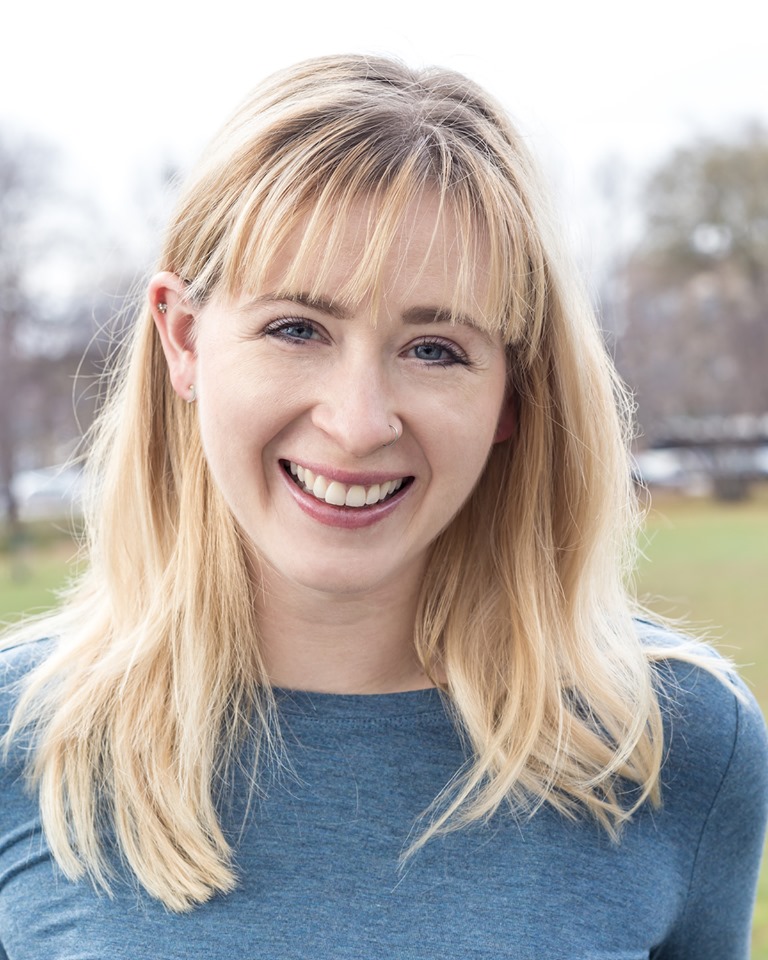
Life After Graduation, Master’s Edition: Emily Chervony
Emily Chervony graduated last May from the Master of Arts Management program. It didn’t take her long to find a full-time position as the Manager of Administration at The People’s Music School! We caught up with her and asked her a few questions about her experience with The People’s Music School and Columbia College Chicago…
Can you tell us a little bit about your new job?
I am the Manager of Administration at The People’s Music School, where I handle the finances, HR, and operations of the school. TPMS is an amazing non profit organization that offers completely free music lessons to the youth of Chicago. We operate out of locations in Albany Park, Uptown, Back of the Yards, and Bronzeville. You can read more about us here!
What parts of the Master of Arts Management program did you benefit from the most (i.e. courses, faculty members, projects, etc)?
Certainly I would never be remotely qualified for this position without the financial and economic training I received in Accounting, Financial Management, and Behavioral Economics with Ryan Smith and Jason Stephens. Before entering the program, I would never have seen myself in a finance role, but Ryan and Jason made the information really accessible for me and gave me the confidence to take on a position like this.
How did the program prepare you for the process of finding a new job?
I had a number of great conversations with faculty mentors that helped me through the process–big shout outs to Beth Ryan, Ryan Smith, Clayton Smith, Jason Stephens, and Monique Maye!
Columbia offers many practicum classes. Which practicum courses did you take, and how did your experience in these hands-on classes prepare you for a job?
I took the Events Management practicum in my first semester and last semester at Columbia, and so I planned the first year of the Fresh Connect and the first year of the Third Mask Festival. Planning both of those large events helped me better think through potential obstacles and mistakes, which will be especially crucial in my work on the operations of People’s.
What advice would you give a first- or second-year graduate student who is starting to think about/apply for jobs?
I have tons of advice! First, enough cannot be said about utilizing the human capital resources around you. Take the time to get to know the faculty and cohort members around you. The more time you spend with them, the better you will understand who they know that could potentially impact your job search. This should begin on day one of grad school and continue throughout your time there.
Once you discover who your cohort mates or faculty members know, reach out and ask them to connect you. Go on informational interviews – as many as possible as soon as possible. Learn about the members of the greater Chicago arts community. Discover what kinds of jobs are out there and what sounds interesting to you. Get a feel for your industry in this community.
Then, maintain those relationships. Check in on the people you met. Friend them on LinkedIn. Set up Google alerts for their companies and when an article pops up about it, message them and ask for their perspective. The more top of mind you stay, the more likely people are to think of you for a potential job down the road.
Be sure not to think of networking as a one way street. Approach each new person as an opportunity to discover what you might be able to help them with. It makes it a lot easier to network when you know that you have something to offer, too – it’ll feel a lot less weird.
Take internships. Lots of them! They’re a great way to get your foot in the door. No, you are not beyond internships just because you’re a graduate student. And if you came straight to grad school from undergrad, this is absolutely vital. Employers will not be impressed by your Masters degree if you don’t have at least some experience in your field to back it up. I came to get my Masters for a career change, and there’s no way I would have been considered for roles if I hadn’t done three different internships in my new field during my time at Columbia.
Once you begin the job hunt in earnest, call in all your favors. Get your resume looked at by the Career Center. Keep a list of all of the job boards to watch (I found my job on idealist.org). Let your network know that you are ready to be employed – don’t be shy about your job search!
As nepotistic as it is, the job hunt is often very much about who you know, so get out there and get to know people.